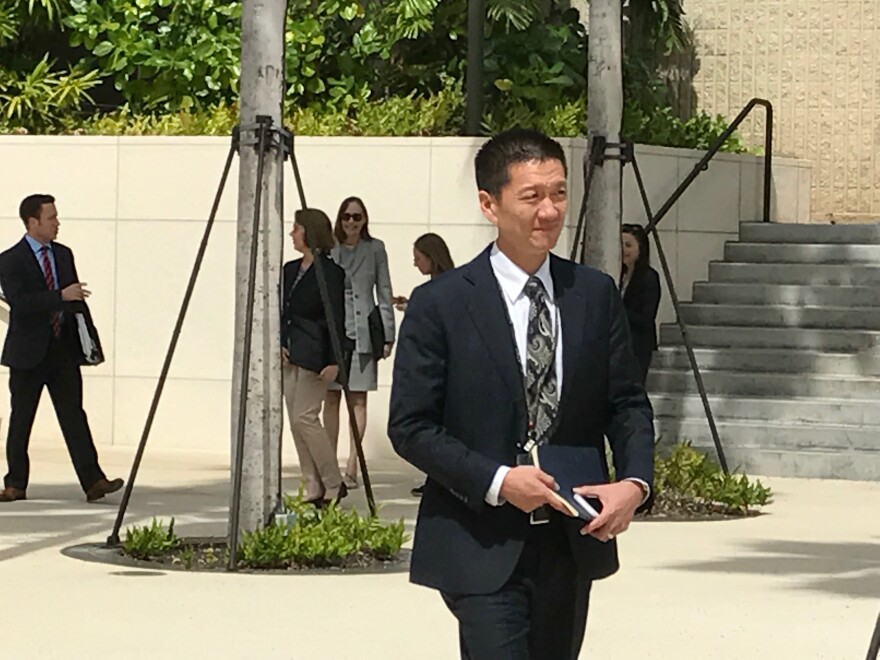The U.S. Supreme Court heard oral arguments yesterday in Hawai’i’s challenge to President Trump’s latest travel ban. HPR’s Wayne Yoshioka reports.
The U.S. Supreme Court heard oral arguments to overturn a 9th Circuit Court of Appeals ruling in November that stated the President’s travel ban exceeded the authority of Congress and violated immigration laws barring discrimination in issuing visas. Solicitor General, Noel Francisco, told the nine Supreme Court justices that the President’s proclamation is constitutional.
“The proclamation reflects the foreign policy and national security judgement that falls well within the President’s power under 1182f and has been successful. This is why the country of Chad was recently dropped from the list.”
1182f of the U.S. code provides executive authority to exclude aliens or deny them entry into the U.S. The State of Hawai’i, including several individuals and a Muslim Group, challenged the President’s travel ban for immigrants, refugees and visa holders from Iran, Libya, Somalia, Syria and Yemen. Attorney Neal Katyal presented arguments for Hawai’i.
“The Executive Order is unlawful for 3 reasons: it conflicts with Congress’s policy choices, it defies the bar of nationality discrimination, something you never heard my friend talk about and it violates the First Amendment.”
Lt. Gov. Doug Chin was State Attorney General until February of this year. He was the first state Attorney General to challenge the Presidential travel ban in Federal District Court and won. He attended the 70-minute Supreme Court hearing in Washington DC and provided this assessment via telephone.
“It was a very active court. Eight out of the 9 justices, all except Justice Thomas, asked questions. They really seemed to be looking at taking this case in a lot of different directions, everywhere from striking down the ban, to upholding it, to perhaps sending it back to a lower court, to looking to seeing whether or not the program was actually accomplishing what it’s supposed to accomplish.”

Chin expects a split decision from the Supreme Court justices. But, he maintains, the travel ban is illegal and unconstitutional and the President cannot operate as though he is above the law. Attorney Katyal presented his closing argument for the Hawai’i respondents.
“Congress is in the driver’s seat when it comes to immigration and that this executive order transgresses the limits that every president has done with this proclamation power since 1918. And, to accept it here, is to accept that the president can take an iron wrecking ball to this statute and pick and choose things that he doesn’t want for purposes of our immigration code. That can’t be the law of the United States.”
And, Solicitor General Francisco offered his final rebuttal.
“The President has made crystal clear, on September 25th, that he had no intention of imposing the Muslim ban. He has made crystal clear, that Muslims in this country are great Americans and there are many, many Muslim countries that love this country and he has praised Islam as one of the great countries of the world. This proclamation is about what it says it’s about: foreign policy and national security and we would ask that you reverse the court below.”




